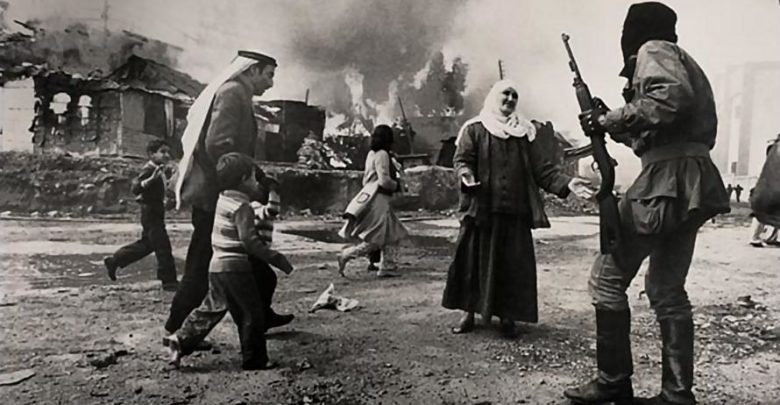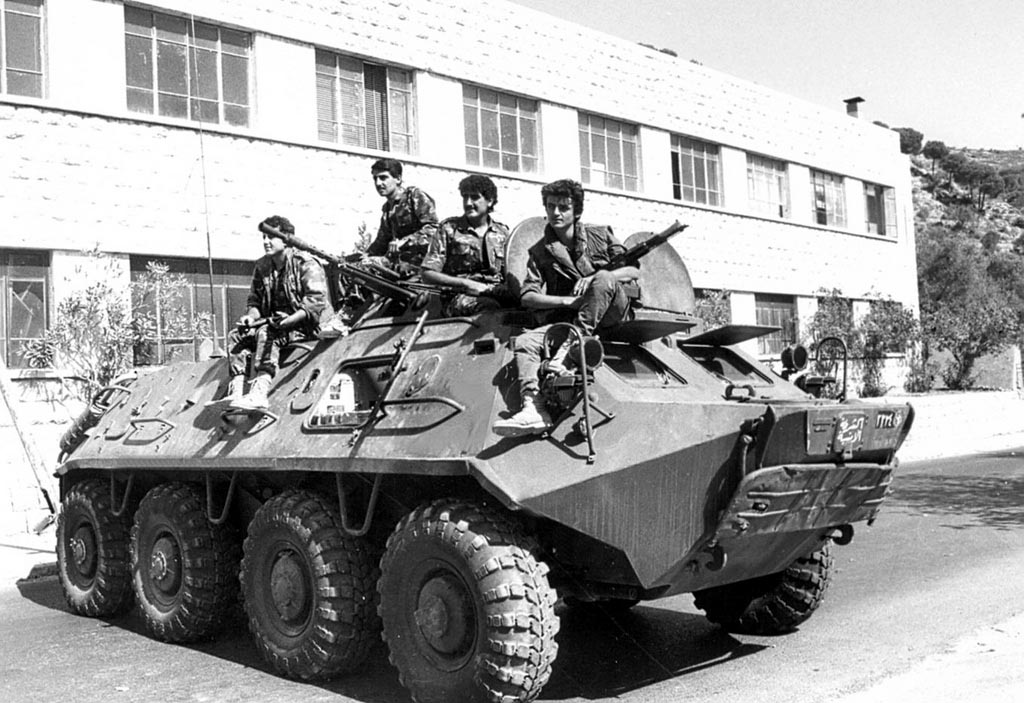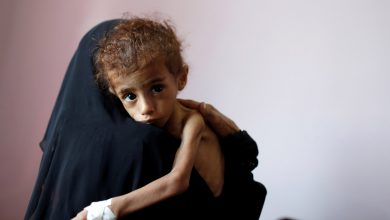
The maintenance of the National Pact’s status quo immensely affected Lebanese civil life. In the country, divisions of wealth and class were readily apparent: rich Sunni families compromised the upper class, while Christian Maronites constituted the upper middle and middle class. The lower class was reserved for the Shiites, which were a rapidly expanding segment of the population, and who had little to no government representation.

In June of 1967, neighboring Israel defeated all Arab forces in the Six-Day war, which resulted in the Israeli occupation of land beyond their legal territorial boundaries. Masses of Palestinians fled north to Lebanon and East to Jordan, bringing with them the PLO (Palestinian Liberation Organization) and their militia. Alarmed by the influx of refugees, King Hussein of Jordan waged a small-scale war to effectively chase the PLO out of the country, which resulted in a second wave of refugees who found their new homes in Lebanon.
Despite their demographic majority, Muslims in Lebanon in 1967 still lived under Christian rule. The arrival of the PLO to Lebanon caused the balance of power to tip towards the Arab Muslim majority. The Maronite government held firm in their stance that official government power schemes would not change, nor were they inclined to give the new militia any de-facto governing power. Civil war finally erupted in 1975, when a Christian Phalange group attacked a group of Palestinians in Beirut.
Initially, the conflict was based around the Lebanese National Movement (LNM) led by the Druze Kamal Jumblat and a Maronite Christian force named the Lebanese front. The LNM soon joined forces with the PLO and other groups of Muslims, while the Maronites joined other Christian militias. The Muslim forces received arms smuggled in by the PLO, and the Maronites through seizing weapons from the crumbling Lebanese army.

At the beginning of the conflict, many Shiites expressed sympathy for the Palestinian cause and the LNM, although it is important to note that the various Shiite militias were slow to join armed fighting. The predominantly Shiite majority area of southern Lebanon would later become a major stage for the Israeli-Palestinian conflict. The state of Lebanon eventually ceded all of the southern portion of the country in avoidance of provoking their heavily armed neighbor. Many living in the region migrated to Beirut in to what is today known as the poverty belt. The young male migrants, previously unaffiliated, joined various Lebanese and Palestinian paramilitary factions.



